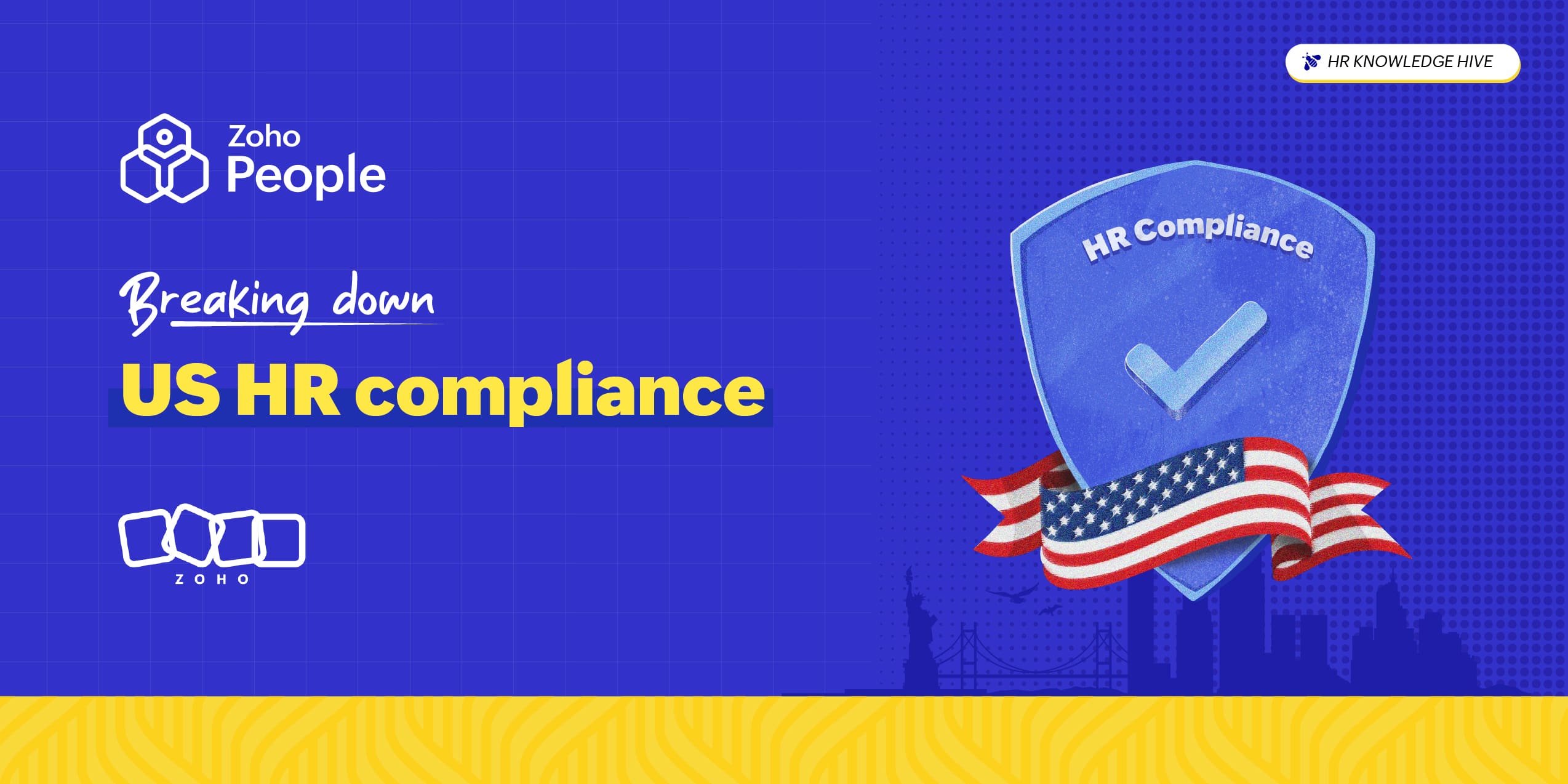- HOME
- HR insights
- Top 6 workplace trends that'll matter for HR professionals in 2023
Top 6 workplace trends that'll matter for HR professionals in 2023
- Last Updated : August 23, 2023
- 1.3K Views
- 4 Min Read

The pandemic and The Great Resignation have ignited what some are calling The Great Realignment. Employees are reevaluating their goals and what they expect from their jobs. As a result, more and more organizations are adapting their HR strategies to meet employee needs. They are taking active steps to identify what is causing employees to quit in the first place and make positive changes to their employee management and engagement practices so that employees stay. The HR trends and priorities that will shape the world of work focus on employee-centric strategies and supportive, flexible work environments. Here are the top six HR trends that'll matter to the HR teams:
Building people-first employee management strategies
In the changing work landscape, the traditional employee management approach of top-level leaders making every decision and focusing solely on the company's success will never work. We'll see more organizations start to build supportive work environments that provide employees with fulfilling experiences. This will help employees bring their best to work, which in turn will pave the way for long-term company growth.
Tips: Work closely with your employees to understand what they expect from their jobs, and listen to their concerns with an empathetic and compassionate mindset. Respect employees in the workplace. Relax strict policies that put employee well-being at stake and cause burnout. Since employees want to work for organizations with missions that align with their values, be sure to apply your culture and core values when it comes to people management. Give employees a clear idea about what is expected from them, offer feedback, and continue to reward good work.
Adapting to the future of work
Since how, when, and where employees get their work done has changed drastically, we'll see a lot of organizations taking steps to adapt so they can stay both relevant and competitive. Greater focus on flexibility, tech tools that simplify work, different workplace models, upskilling, and employee well-being are some of the trends that will define the way forward.
Tips: Preparing your management to be open to change and educating them about the future of work is the first step. Make use of employee data to identify processes and practices that work well for your employees. Tweak your organizational policies and HR processes like attendance tracking, leave tracking, and performance management to stay consistent with work trends. Most importantly, be skill-oriented and encourage each of your employees to develop the critical skills that will help your organization stay resilient.
Being transparent about pay
Since more and more organizations are striving to foster a workplace that ensures equality and prevents discrimination based on factors like gender, religion, and ethnicity, pay transparency will become one of the top trends in 2023. Very recently, Californian and Washington State governments passed laws that require organizations to include the role's pay range in job postings and advertisements.
Tips: During the recruitment process, be very clear about how your organization determines employee salaries, including how elements like location, experience, and education factor into the decision. Be sure to explain the organization's pay structure as well. Decide if making employee salaries public would work well for your organization.
Elevating manager soft skill proficiency
As organizations move towards a people-centric culture, it's crucial to ensure that employees are supported by qualified managers. Managers can have a huge impact on your employee management strategies, as they interact with employees almost every day. No amount of change to the company culture will work unless managers are educated on how to trust, motivate, and engage their teams to do their best work.
Tips: As a first step, conduct ongoing soft skills training programs for your managers that help them develop their communication, delegation, judgment, decision-making, and team-building skills. Check out this blog post to understand the five soft skills every manager should possess for effective employee management. When promoting employees to managerial roles, always consider how well they put your company culture into practice as you make your decision. Assign experienced mentors who can advise managers on how to improve their approach.
Investing in tech tools that support hybrid working
The hybrid working model continues to be popular among employees. However, it comes with a set of challenges. Communication may take a hit as some employees work from the office and some from home. Likewise, performance reviews can get tricky when employees and managers are not under the same roof. We'll see a substantial number of organizations investing in tech tools that help hybrid employees communicate and work better while ensuring a great working experience.
Tips: Implement modern, easy-to-use tech tools that simplify a range of business processes, including communication, collaboration, file sharing, project management, HR services management, and performance management. Provide personalized tech tools based on the roles and responsibilities of each of your employees.
Facilitating internal promotions
The current generation of employees gives greater importance to their career growth and development. To attract and retain this group of employees, we'll see several organizations promoting their existing employees for higher positions, rather than hiring someone new. According to a recent report from LinkedIn, employees who work at organizations that promote internal growth stay 41% longer than employees at organizations that have low rates of internal promotions.
Tips: Develop standard criteria for promoting your employees based on their current performance, leadership skills, seniority or experience level, or even the training programs that they complete. Evaluate what the role requires, as well as the strengths and weaknesses of employees who are due for the promotion. Keep managers involved throughout the process. This will help you make a fair selection.
Staying on top of 2023 HR trends
As the role of HR teams continues to evolve from largely administrative to increasingly strategic, HR professionals need to keep adapting to workplace trends and help their organizations navigate them seamlessly. If you have any questions regarding these trends, drop a comment in the comments section and we'll be glad to help. Wishing you all a very happy new year!
 Tarika
TarikaContent Specialist at Zoho People


